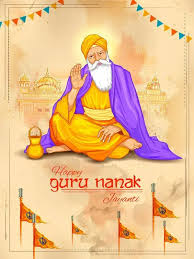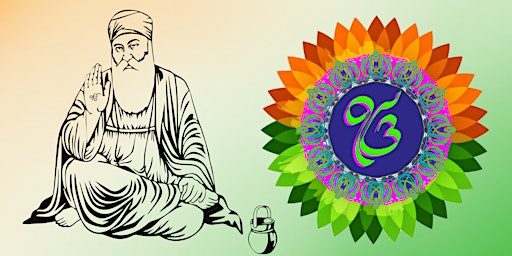Who Was Guru Nanak? A Beginner’s Guide for the UK Audience
Guru Nanak, the founder of Sikhism, is one of the most revered spiritual leaders in history. Born in 1469, his teachings have shaped the lives of millions worldwide, including a large and vibrant Sikh community in the UK. For many, Guru Nanak represents not just a religious figure but a symbol of equality, justice, and compassion. This guide will provide a simple introduction to Guru Nanak and his enduring legacy.

Story of Guru Nanak
Guru Nanak was born on 15 April 1469 in a small village called Talwandi, now in Pakistan, which is known today as Nankana Sahib. His parents, Mehta Kalu and Mata Tripta, were from a humble background, with his father working as an accountant. From an early age, Nanak showed signs of deep spiritual wisdom and curiosity. His teachings, though radical for his time, were rooted in a belief that all people, regardless of their caste, creed, or gender, were equal.
Key Teachings of Guru Nanak
At the heart of Guru Nanak's teachings were simple yet profound principles that continue to resonate today:
Oneness of God: Guru Nanak taught that there is only one God, who is formless, all-powerful, and present in all things. His famous phrase, "Ik Onkar," means "One God" and is a central tenet of Sikhism.
Equality for All: Guru Nanak rejected the caste system and championed equality for all people, regardless of their social status, religion, or gender. His emphasis on social justice remains deeply significant, especially in multicultural societies like the UK.
Selfless Service (Seva): Guru Nanak encouraged his followers to engage in seva—selfless service to others. This is one of the reasons Sikh communities worldwide, including in the UK, often provide free community kitchens, or Langar, where anyone can come for a meal.
Honest Living: Guru Nanak also stressed the importance of earning an honest living (Kirat Karni) and living a life filled with hard work, truthfulness, and dignity.
The Formation of Sikhism
At the age of 30, Guru Nanak had a profound spiritual experience while meditating near a river. After disappearing for three days, he returned with the message that "There is no Hindu, there is no Muslim," emphasizing the universality of God’s message. From that moment on, Guru Nanak devoted his life to teaching and spreading this message. His followers, who came to be known as Sikhs, meaning "learners," formed the foundation of Sikhism, a religion that stresses unity, equality, and the pursuit of justice.

How Guru Nanak’s Teachings Impact the UK Sikh Community
The UK has one of the largest Sikh populations outside India, and Guru Nanak’s teachings are central to the way of life for British Sikhs. Gurdwaras, or Sikh temples, can be found in cities across the UK, including in London, Birmingham, and Leicester. They offer free meals, educational services, and community support, all in line with Guru Nanak’s principle of seva.
Celebrating Guru Nanak Jayanti in the UK
One of the biggest Sikh festivals is Guru Nanak Jayanti, also known as Gurpurab, which marks the birth of Guru Nanak. In 2024, Guru Nanak Jayanti will be celebrated on Friday, 15 November. In the UK, Sikhs celebrate this day with processions through the streets, prayers in Gurdwaras, and Langar—a community meal open to everyone, regardless of their background.
In cities like London, Southall, and Leicester, Gurdwaras will host special events including recitations of the Guru Granth Sahib (the Sikh holy scripture) and Kirtans (spiritual hymns). It’s a time of great joy and reflection for the Sikh community, with celebrations often including fireworks and social gatherings.
Guru Nanak’s Legacy in Modern UK
Guru Nanak’s teachings of equality, social justice, and compassion are more relevant than ever in today’s world. In Britain’s multicultural society, Guru Nanak’s message of unity across different faiths and backgrounds continues to inspire people of all communities. Sikhs in the UK actively practice his teachings by engaging in charitable activities, working toward social justice, and promoting understanding between different groups.
The legacy of Guru Nanak can be seen in the contributions of British Sikhs across various sectors—from politics and business to sports and the arts. His message continues to guide and shape the values of the Sikh community in the UK today.
Conclusion
For those in the UK who may not be familiar with Guru Nanak, his life and teachings offer timeless lessons on equality, compassion, and the oneness of humanity. Whether you are Sikh or not, his principles of selflessness, community service, and standing up for justice resonate with universal values. As British Sikhs prepare to celebrate Guru Nanak Jayanti in 2024, it’s an opportunity for everyone to reflect on the importance of unity and kindness in our lives.
Related Articles

Guru Nanak Jayanti 2024 in the UK: Date, Celebrations, and Significance
Guru Nanak Jayanti 2024, also known as Gurpurab, will be celebrated in the UK on Friday, 15th November. Discover the significance of this important Sikh festival, how it's observed in the UK, and ways to join in the celebrations honoring Guru Nanak Dev Ji, the founder of Sikhism.